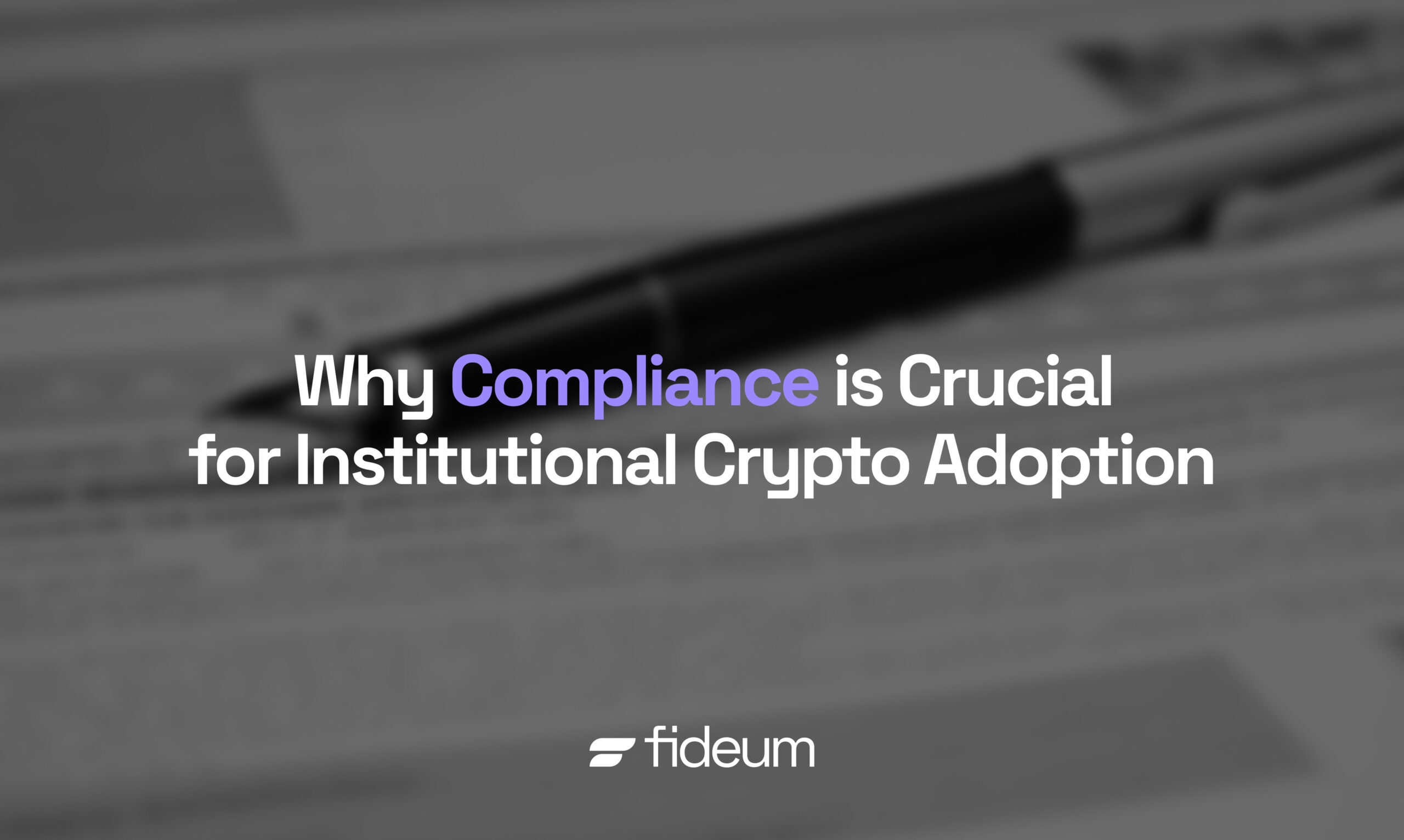Introducing blockbank’s Web App!
Enjoy and explore all the features of blockbank’s CeFi account on your desktop! We are excited to announce the launch of blockbank’s highly anticipated Web […]
 x Mastercard: A new era of Finance for blockbank unveiled 🚀
x Mastercard: A new era of Finance for blockbank unveiled 🚀

For institutional crypto to flourish, there’s one thing that the industry needs to tackle head-on: compliance. While TradFi has enforced compliance by centralized authorities, DeFi is primarily self-enforced. With new institutional players moving into cryptocurrency, how can they balance the innovation and competitive market of the digital asset ecosystem with the need for institutional trust, reputation, and compliance?
What exactly kind of compliance for institutional crypto are we speaking about?
Some of these will be more relevant to particular industries than to others. But any institution wanting to move into the crypto space will need to have an understanding of them all to appreciate what will be a challenge or an opportunity.
Institutions wanting to move into the crypto space tend to be traditional financial brands looking to bring digital assets into their existing catalogue. These institutions adopting crypto could be old or new, traditional or radical. But no matter what their goals, they are often bringing digital assets in alongside their existing offering.
The Chicago Mercantile Exchange is a stark example of this. The Chicago Mercantile Exchange was founded in 1898 as the Chicago Butter and Egg Board, an exchange for agricultural commodities. In 1919, their commodities list was extended to include potatoes and onions; by the 1970s it included offering contracts on foreign currencies; by the 2000s the CME included commodities, foreign exchange, interest rates, and stock indexes; and in 2024 CME announced that it plans to launch bitcoin trading.
So alongside futures on snowfall and rainfall, and futures and options of lean hogs, wheat, corn and soybeans, CME will also have bitcoin in their product portfolio.
For institutions such as CME that have brought blockchain assets into their more traditional portfolio, what are most key ways in which compliance is crucial?
Compliance with risk and reputation protocols helps institutions manage the risks associated with crypto trading. The cryptocurrency space can be volatile, and prone to ups and downs. Risk management should also include assessment of and protection against security breaches.
With risk management comes reputation management. By anticipating the potential risks for an institution, and having a thorough risk assessment process, the likelihood of reputationally damaging incidents is lower.
In 2024, a study showed that 54% of institutional investors in Japan planned to invest in crypto, with many citing ‘positive’ and ‘optimistic’ impressions of the cryptocurrency space. One of the barriers cited however was ‘risk, high volatility, and stringent regulatory requirements’. Strong compliance regulations will go a long way to allaying those kinds of fears from investors. Investor confidence is particularly crucial for institutions to branch into new areas – bringing more money and better infrastructure for the adoption of crypto.
Compliance with financial regulations provides institutions with access to regulated markets essential for trading and investing in crypto. Regulations vary across regions and countries, but understanding and adhering to regional regulatory frameworks such as MiCA in the European Union means that more markets are open. Broader options, such as multiple market access, are crucial to institutions adopting cryptocurrency.
By adhering to compliance regulations, institutions adopting crypto can navigate the digital assets ecosystem. Compliance provides the necessary regulatory framework to access broader markets, risk and reputation management, strong investor and customer confidence, and data protection to ensure the integrity of sensitive financial data. As the market evolves, keeping up with regulatory compliance is essential for unlocking the full potential of institutional adoption of crypto. It’s not just about meeting legal requirements, but about creating a secure and transparent environment to adopt cryptocurrency.